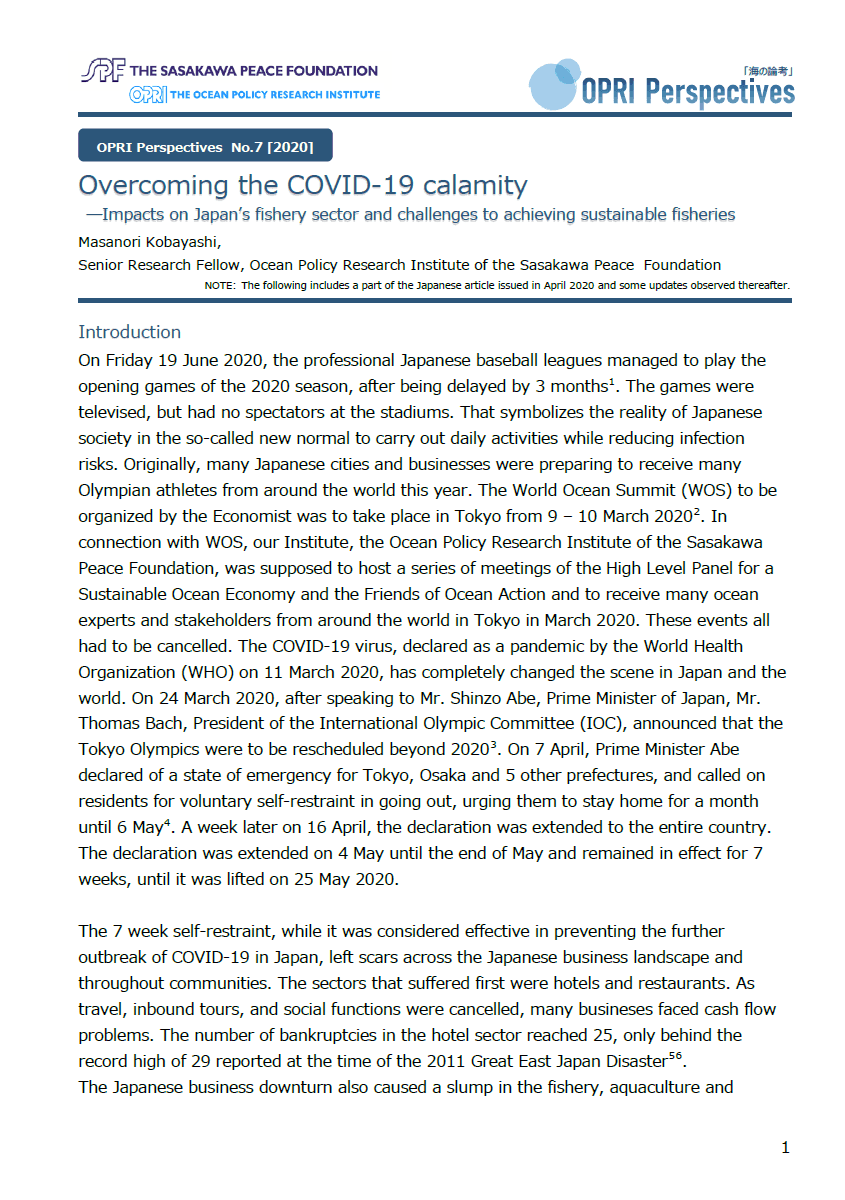Publications
Overcoming the COVID-19 calamity -- Impacts on Japan’s fishery sector and challenges to achieving sustainable fisheries
Please click here for the PDF file download
【Abstract】
COVID-19 infections spread across Japan through late March and hit a peak in mid-April. Though the infections decreased thereafter, sporadic infections in Tokyo and the growing number of infections overseas continue to pose concerns and challenges. The economic downturns due to the COVID-19 pandemic have caused damages to Japan’s fishery, aquaculture, and seafood sectors, as the demand for seafood has fallen and prices have plummeted. Non-residential seafarers and observers have been unable to return to their home countries due to the suspension of flight and port services. At the same time, COVID-19 revealed the inherent vulnerability of the Japanese fishery sector. Fishery productivity has stagnated due to multiple factors such as changes in the bilateral and multilateral fishery arrangements, fish production decreases possibly due to the relocation of fish stock habitats and migratory routes, and dependency on limited marketing channels. It is vital to promote sustainable fisheries as a way to harness the resilient and adaptive management capacity of the fishery sector, and further research needs to be undertaken to articulate policy options toward this end.
